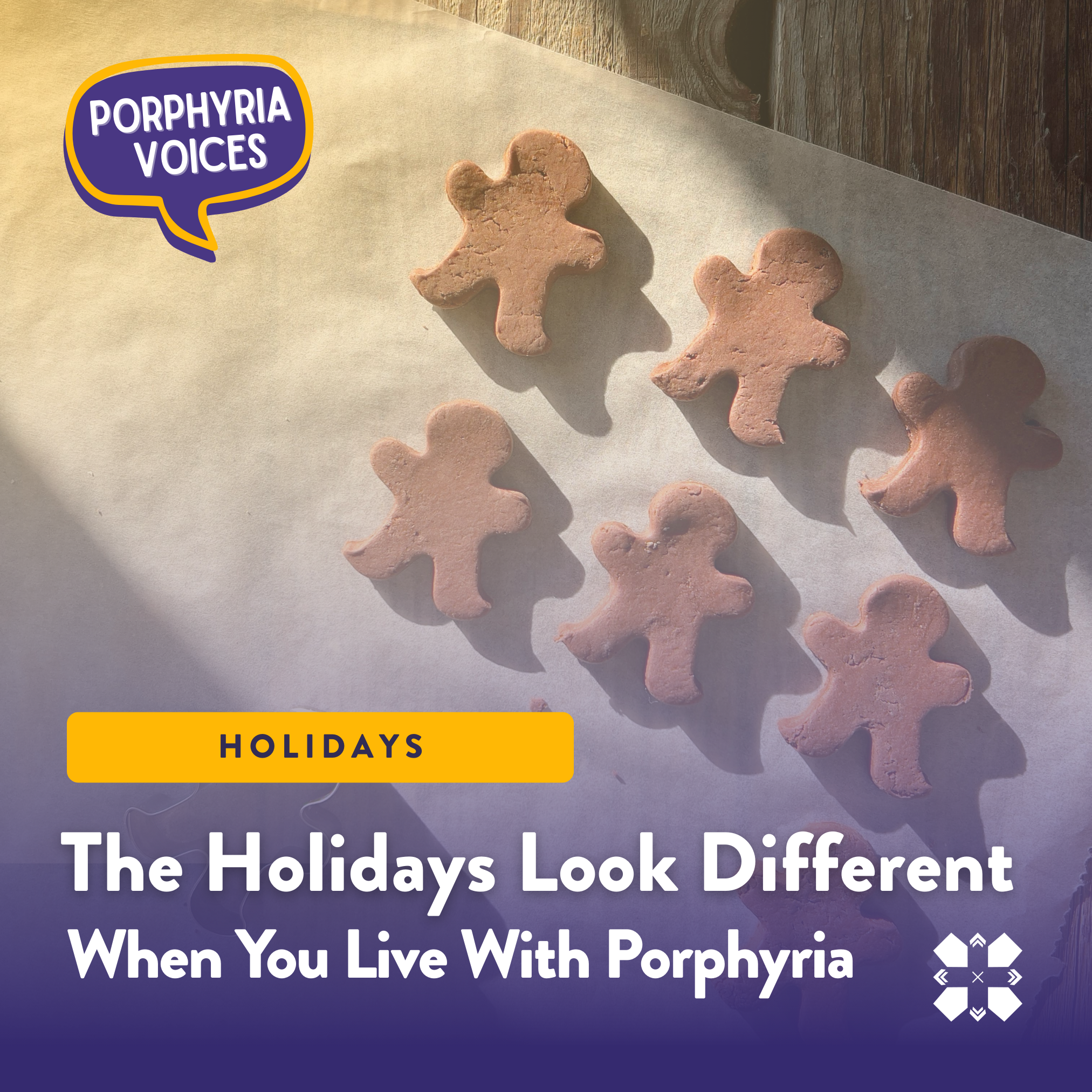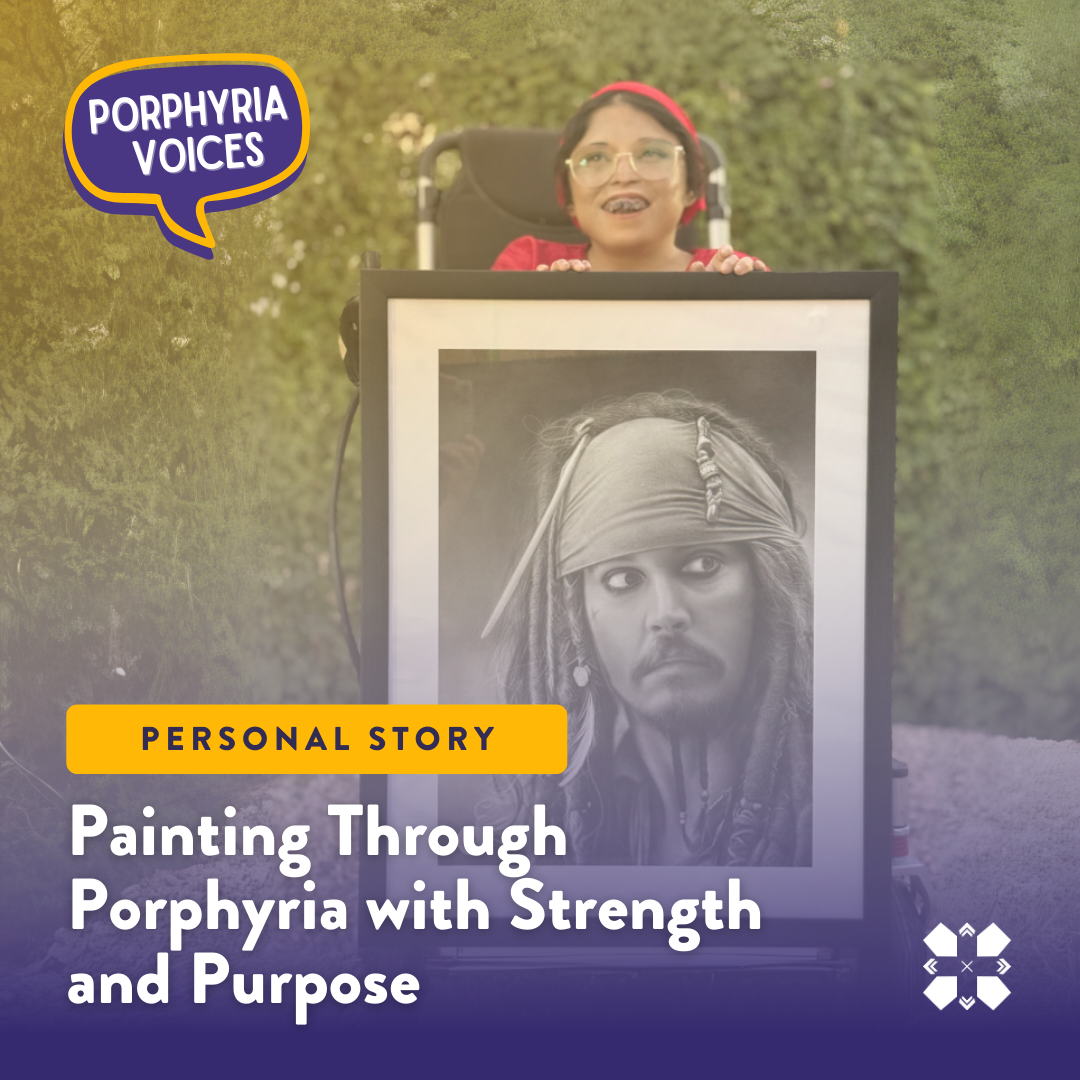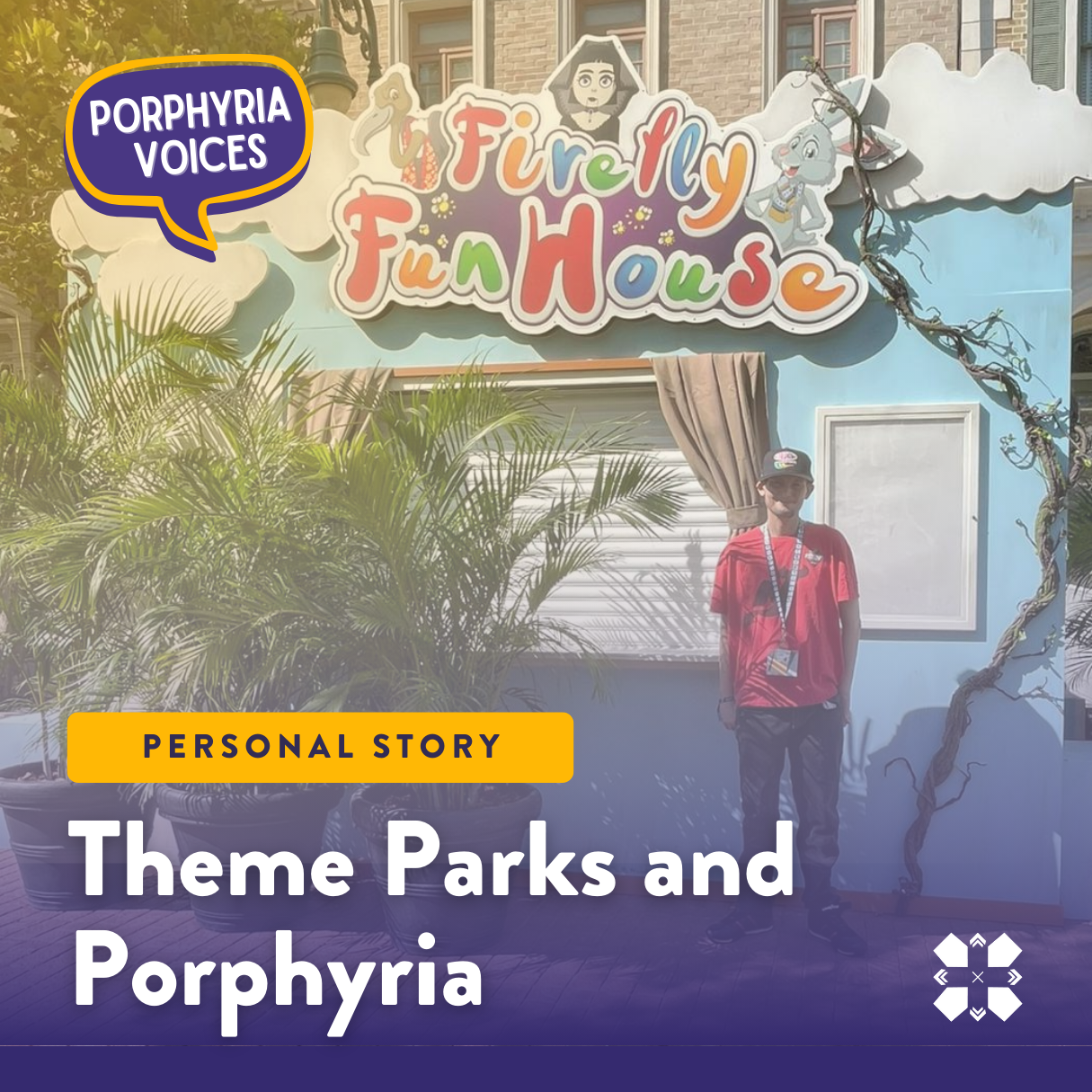How Positive Experiences Can Exacerbate Acute Porphyria: Managing Stress and Symptoms
Porphyria Voices shares experiences, insights, and advice from the porphyria community. Discover valuable knowledge, foster connections, and join us in raising awareness to empower and unite our porphyria family.
Written by Mayra Martínez
Curated by Katrina Parra
Living with acute intermittent porphyria (AIP) presents unique challenges. While it’s often assumed that stress only arises from negative experiences, for many living with AIP, even positive events can trigger flare-ups. In this article, I share my personal experience of how seemingly joyful events have exacerbated my symptoms and offer tips on managing the strain that comes with living with a chronic illness like AIP.
“Even too much fun can overwhelm our bodies.
So therefore,
I encourage you to make wise trade-offs but KEEP LIVING.”
-Mayra Martínez, AIP patient.
The Stress of Celebrating Big Moments
A few weeks ago, my husband Wilson and I celebrated our 25th wedding anniversary with a wedding vow renewal. While the weekend was filled with joy, love, and unforgettable memories, it left me feeling physically drained. The stress of the celebration unexpectedly triggered an AIP flare.
Symptoms such as severe abdominal pain, nausea, migraines, and muscle weakness set in quickly. In addition to these physical manifestations, my nervous system went haywire, resulting in uncontrollable shaking. For those living with AIP, emotional and physical stress can worsen symptoms, and in my case, the stress of the celebration triggered an intense flare-up.
Mayra and her family.
Understanding the Symptoms and Triggers of AIP
AIP is a rare, genetic disorder that affects the production of heme, a vital component of hemoglobin. One of the most common symptoms is intense headaches, often accompanied by dizziness, confusion, and sometimes hallucinations. AIP attacks progress through three stages: the prodromal, visceral, and neurological phases. Symptoms can last for days or even weeks, and recovery often takes months.
Personal triggers for AIP flare-ups can include infections, certain medications, stress (which my body struggles to distinguish between positive and negative), hormonal fluctuations, and sun exposure.
The Emotional Toll of Living with AIP
As my parents, best friends and family members traveled back to VA, it left me feeling overwhelmed by how much love had been poured into our lives. Reliving the life Wilson and I have built the last 25 years together gave me so many emotions to process.
Overwhelming gratitude gushed out of my pores for the fairytale story my life has been even through the dark chapters such as going paralyzed in 2018 and my near-death experience due to Porphyria in 2019.
It was truly powerful to hear friends’ reference how our faith and love (central to our journey) has impacted their own lives. And how overcoming a near-death moment together has given us a bond in ways that words can’t fully capture. Hearing it from their point of view truly changed the way I see my marriage today.
These emotional experiences, while positive, brought out a range of emotions, making the flare even harder to manage. Managing AIP involves balancing these emotional experiences and protecting yourself from emotional strain as much as possible.
Managing Stress: The Sneakiest Trigger for Acute Porphyria
When dealing with AIP, one of the hardest challenges is managing stress. Stress doesn’t just come from negative situations—it can also come from positive ones, like celebrations and milestones.
In desperation to heal from the active flare, I received nerve blockers in my shoulders, Botox for migraines, chiropractic & acupuncture care, panhematin, and a spa treatment to help reduce stress in my body. None of those changed my reality, but they made it easier to cope with so much pain. I’ve learned that stress is the sneakiest and most difficult variable to control when it comes to acute porphyria. It adds extra strain to our already underfunctioning livers.
Mayra at the hospital receiving Botox for migraines.
Living with a chronic illness requires constant trade-offs. I’ve had to learn how to manage my energy, pacing myself throughout the week so I can still attend church services on Sundays despite persistent flare-ups.
Living with AIP: The Importance of Wise Trade-offs
Living with a rare disease is stressful—not just because of shifting schedules or managing symptoms at home but also because those of us with rare diseases, along with our caregivers, often spend the equivalent of a full-time job managing our health. Even too much fun can overwhelm the body. So, it’s crucial to make wise trade-offs and not let the limitations of AIP take away your quality of life.
I encourage you to keep living, but be mindful of your health and make necessary adjustments to your lifestyle. Whether it's celebrating a milestone or taking time to rest, managing the balance between joy and care is essential.
For more information on acute intermittent porphyria and managing symptoms, visit Porphyria.org or contact us at info@porphyria.org. We are here to support you in your journey.
After a series of misdiagnoses and a life-threatening experience, Mayra was diagnosed with AIP in 2021. Despite the immense challenges, she chose to fight for her life. Today, she is not only recovering but also enjoys being a Porphyria Advocate with the UPA. She enjoys connecting with others living with porphyria. Her resilience continues to inspire others as she spreads awareness and support.
Have knowledge or experiences to share with Porphyria Voices?
Reach out and pitch your idea—we’d love to feature your unique perspective!











